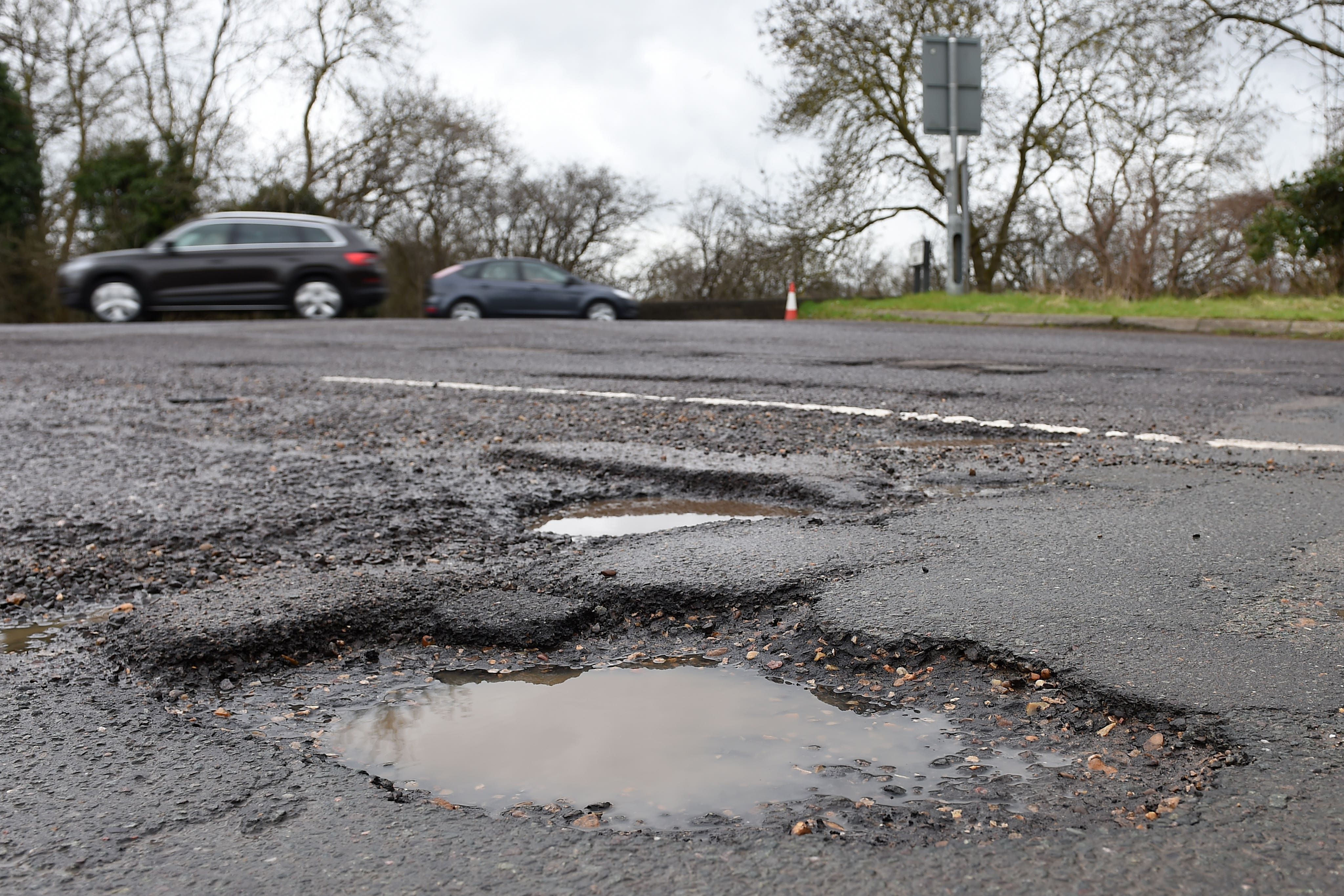Government has ‘significant gaps’ in awareness of local road conditions – report
The National Audit Office made a series of recommendations to the Department for Transport.

The Government is unaware of the state of English local roads or how well councils are using funds to tackle potholes, Whitehall’s spending watchdog has found.
Local authorities are not required to report the condition of unclassified roads, which make up 62% of their networks, the National Audit Office (NAO) said in a report.
This results in “significant gaps” in its understanding of the quality of road surfaces, the document stated.
The Department for Transport (DfT) told the NAO it decided to limit the data it collects to minimise administrative burdens.
The report stated that the lack of information received by the department means it “does not know” the impact of its funding for local roads maintenance, which totalled £1.1 billion in the 2022/23 financial year.
The cost of bringing pothole-plagued local roads in England and Wales up to scratch has been estimated at £16.3 billion.
RAC head of policy Simon Williams said: “It’s bad enough that historically the Government doesn’t really know just how bad our roads are.
“But it’s absolutely staggering that it doesn’t know whether the money it gives to councils has been used effectively.
“This has to change and we very much hope the new Government acts fast to fix it.”
The new Government has an opportunity to implement longer-term funding and stricter controls and guidance, to bring about more innovation leading to permanent repairs rather than the current patchwork approach
Steve Gooding, director of motoring research charity the RAC Foundation, said: “To fix a problem, first it must be fully understood, hence the need for much greater focus on collecting data about our broken roads.
“This is especially true in today’s economic environment where there are huge demands being made on taxpayers’ pounds.”
AA president Edmund King said: “The new Government has an opportunity to implement longer-term funding and stricter controls and guidance, to bring about more innovation leading to permanent repairs rather than the current patchwork approach.”
The NAO made a series of recommendations to the DfT, including reviewing its reporting requirements for local road conditions, and requesting information on other key road assets such as bridges.
A DfT spokesperson said: “We are absolutely committed to tackling the poor state of our roads.
“That’s why we’ve pledged to support local authorities to fix local pothole-ridden roads for the long term.”
Before the General Election, Labour committed to fund the fixing of an additional one million potholes across England each year.
It said this would be paid for by deferring the A27 Arundel bypass in West Sussex, which it described as “poor value for money”.
In October 2023, the Conservative government announced it would provide £8.3 billion of extra funding over 11 years to fix potholes in England.
This was part of its Network North strategy to use money saved by scrapping the planned extension of HS2 north of Birmingham.
Councillor Claire Holland, transport spokesperson for the Local Government Association, said: “Limited resources and a £16.3 billion repair backlog means councils continue to prioritise road repairs according to local circumstances, and want to focus on preventive measures where they can.
“The new government should commit to maintain the previous administration’s spending plans for local highways maintenance, alongside the need for long-term funding certainty as recommended in this report, to help better support resurfacing schemes and prevent potholes in the first place.”
Bookmark popover
Removed from bookmarks